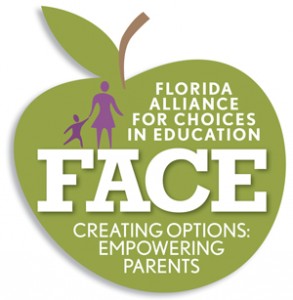The parent trigger bill is back in the Florida Legislature this year and, judging by the spirited 8-5 party line vote it got in its first committee stop Thursday, perhaps as contentious as ever. But unlike last year, some Florida parents and child advocates not only voiced support, but drove to Tallahassee to tell lawmakers in person.
Former Marion County teacher Karen Francis-Winston trekked 200 miles from Ocala with her daughter to testify in favor of the bill sponsored by Republican Reps. Michael Bileca and Carlos Trujillo.
Pastor Alfred Johnson came from Tampa,where he said he serves a low-income community.
“I don’t understand what’s the matter with empowering parents to make a recommendation,’’ he told the Choice & Innovation Subcommittee. “We’re doing nothing but recognizing they have a voice, a say in the process.’’
House Bill 867, with an identical version filed by Sen. Kelli Stargel, R-Lakeland, allows parents with children in an F-rated school to petition the school district to consider a turnaround plan that could include bringing in a charter school operator. The petition would need signatures from a majority of parents. (more…)
 In 2010, Doug Tuthill took a look around and realized he was living in a new era.
In 2010, Doug Tuthill took a look around and realized he was living in a new era.
“Florida had this rapidly expanding portfolio of school choice options,” said Tuthill, the president of Step Up For Students, which administers the state’s tax credit scholarship program. “Yet there was little dialogue among the groups representing those choices. We weren’t talking to each other about what was working, what wasn’t, and why.”
Several important players in this bourgeoning movement recognized the need for more collaboration. Florida Virtual School and Step Up For Students, among others, wanted to see the school choice movement united, so they could learn from each other and talk through any differences.
Thus, FACE was born.
Florida Alliance for Choices in Education, or FACE, is comprised of more than 50 members, representing a diverse coalition of organizations dedicated to providing Florida school children with more educational options. Such organizations include National Coalition of Public School Options, Florida Charter School Alliance, Foundation for Florida’s Future, and StudentsFirst - all coming together with the belief that, as the FACE website says, “State policy should enable all parents to be fully engaged in their children’s education and to access those learning options that best meet their children’s needs.”
Step Up For Students (which co-hosts this blog) staffed the initial effort. Three individuals - Wendy Howard, a parent advocate from Tampa; Jim Horne, a former legislator and state education commissioner; and Julie Young, president and CEO of Florida Virtual School - spent a year facilitating outreach and diplomacy, eventually bringing all components of choice together in one organization.
Florida is the first state to do this. (more…)
 Grad rates. Not good for Florida, according to this new report from the U.S. Department of Education. In 2009-10, the state’s rate was 70.8 percent, putting it No. 44 among all 50 states and Washington D.C. And unlike other estimates, the federal numbers show modestly improving trend lines rather than strong gains.
Grad rates. Not good for Florida, according to this new report from the U.S. Department of Education. In 2009-10, the state’s rate was 70.8 percent, putting it No. 44 among all 50 states and Washington D.C. And unlike other estimates, the federal numbers show modestly improving trend lines rather than strong gains.
For what it’s worth, the U.S. DOE says the formula used for this report isn’t as accurate as others – and, in fact, is being phased out and replaced by a more precise formula. Coverage from Gradebook and StateImpact Florida. Nationally, the rate reached its highest point in decades. Coverage from Los Angeles Times, Washington Post, Huffington Post.
Teacher pay raises. Gov. Rick Scott will seek them in his budget proposal, with an announcement set for today. Karen Aronowitz, president of United Teachers of Dade in Miami, tells the Tampa Bay Times, “Tell him to send the money, but no one is fooled by this. He’s just restoring money that was already stolen from teachers." More from South Florida Sun Sentinel and News Service of Florida.
Teach for America. EdFly Blog: “Teach for America recruits bright, motivated university graduates and puts them in classrooms with low-income, disadvantaged kids. Normally, liberals would latch on to such a notion – think Peace Corps in urban neighborhoods.” But no.
Teacher evaluations. The new system is on the right track, but it needs more work to be meaningful, editorializes TCPalm.com.
Guts. Somehow, Florida’s decision to participate in PIRLS and other international assessments is being spun in some circles as a negative. The Quick and The Ed blog credits Florida for not shying away from what could be unflattering comparisons.
Tony Bennett. He'll be in the spotlight this legislative session. Sunshine State News.
Parent power. Florida still ranks No. 2 in the Center for Education Reform’s revised Parent Power Index. SchoolZone.
Charter schools. After two F's in a row, Lee Charter Academy in Fort Myers will have to close. Fort Myers News Press. (more…)
 Words such as voucher, privatization, profit and corporation are often used as weapons by individuals and groups who oppose parental empowerment and school choice. Using words as weapons is especially common during periods of significant social change - we all do it - but the practice undermines civic discourse and makes finding common ground more difficult.
Words such as voucher, privatization, profit and corporation are often used as weapons by individuals and groups who oppose parental empowerment and school choice. Using words as weapons is especially common during periods of significant social change - we all do it - but the practice undermines civic discourse and makes finding common ground more difficult.
“Market” is another term school choice opponents use to connote evil, but our way of life is largely based on markets, and public education is increasingly embracing market processes as customized teaching and learning become more common. Our challenge moving forward is regulating public education markets in ways that maximizes their effectiveness and efficiency.
People access products and services in one of two ways. Either their government assigns them, or they choose for themselves. In the United States, we have historically allowed citizens to choose, and this system of provider and consumer choice is a “market.”
In a goods and services market, providers decide which goods and services they want to sell, and consumers choose those they want to buy. Markets, when implemented properly, are preferable to assignment systems because they better utilize people’s knowledge, skills and motivation. Citizens are allowed to use their own experiences and judgments when making selling and purchasing decisions, and this citizen empowerment maximizes the universe of ideas from which improvement and innovation derive.
When governments assign products and services to their citizens, they rely on a small group of people to decide what to offer. This top-down approach is less open, transparent and effective than the decision-making that occurs in markets, and it discourages creativity. This is why most improvements in goods and services emerge from market systems rather than government assignment systems.
Markets allow providers to learn from consumers. When governments dictate to consumers what goods and services they may have, their citizens’ true wants and needs are not fully considered. The voice of the customer is silent. But when consumers are empowered to choose for themselves, providers learn from these choices and adjust accordingly. In markets, this necessity to meet customers’ needs drives innovation and continuous improvement. (more…)